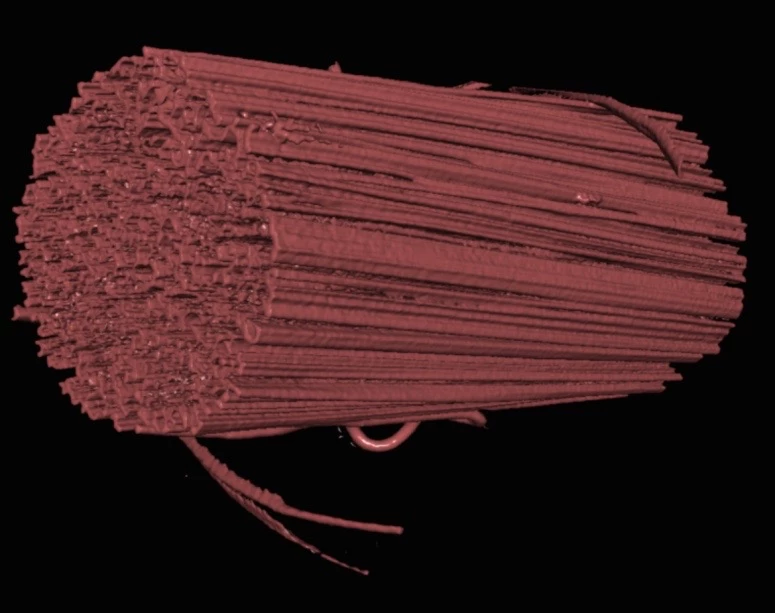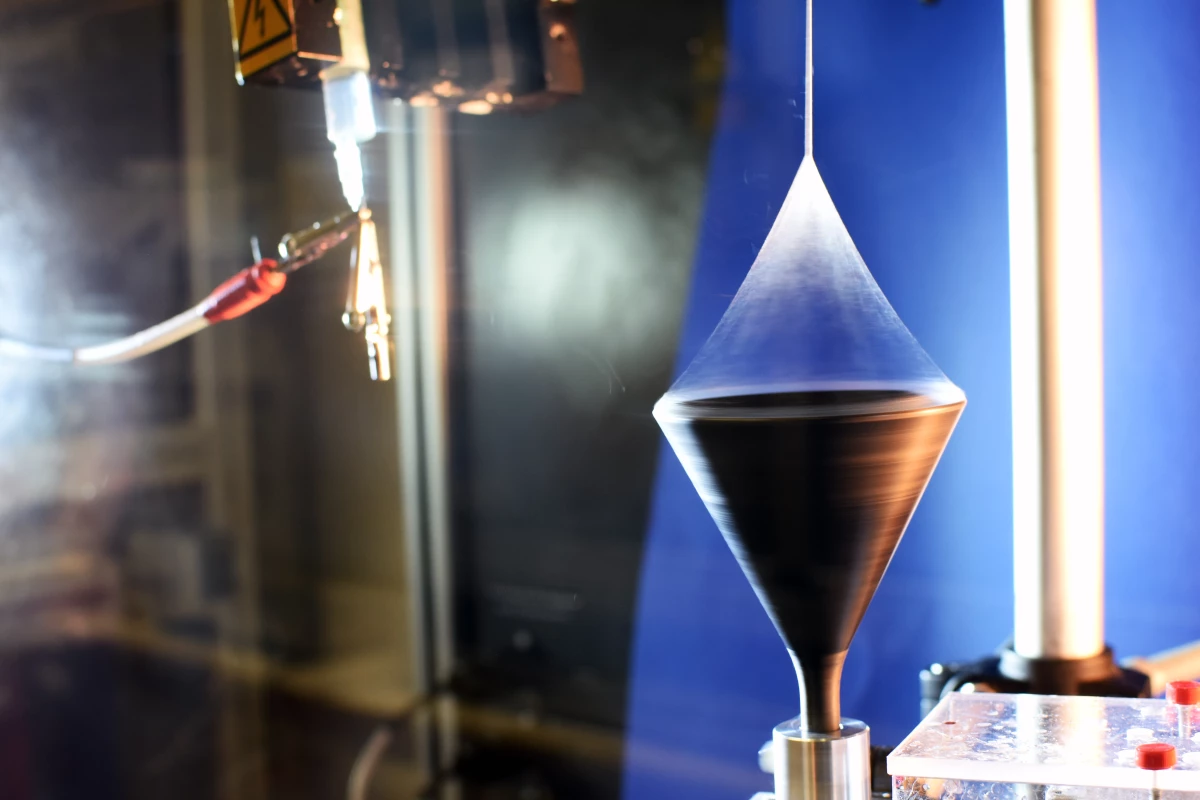When it comes to manmade fibers, they can typically either be strong or tough. A new material developed in part by Germany's University of Bayreuth, however, is claimed to be both.
In a nutshell, strength is the ability to withstand force without permanently deforming, while toughness is the ability withstand force without fracturing. Not only does the new type of fiber reportedly combine both qualities, but it's also said to be very lightweight, and fully recyclable.
Each fiber is about the width of a human hair, and it consists of up to 4,000 much smaller fibers made of an industrial polymer known as polyacrylonitrile. These smaller fibers are called fibrils, and they're produced via an electrospinning process. They're adhered together longitudinally using a small amount of poly(ethylene glycol) bisazide.
What results is a single fiber that's made up of many joined fibrils. That fiber is stretched and heated, after which it's left to cool for several hours – still in a stretched state. The finished product is said to possess qualities similar to those of spider silk. A single short length of the fiber, weighing "less than a fruit fly," can be used to repeatedly lift a 30-gram (1-oz) weight without snapping or permanently stretching.

It is now hoped that once the technology is developed further, the "multifibrillar polyacrylonitrile fibers" could find use in fields such as textiles, aerospace or medicine.
"We are certain that our research results have opened the door to a new, forward-looking class of materials," says the lead scientist, Prof. Andreas Greiner. "Practical applications on the part of industry can be expected in the near future. In polymer science, our fibers will be able to provide valuable services in the further research and development of high-performance functional materials."
A paper on the research was recently published in the journal Science. Also involved in the study were scientists from Germany's Martin Luther University, RWTH Aachen University, Jülich Research Center, and Fraunhofer Institute for Microstructure of Materials and Systems, along with China's Jiangxi Normal University and Switzerland's ETH Zurich research institute.
Source: University of Bayreuth





